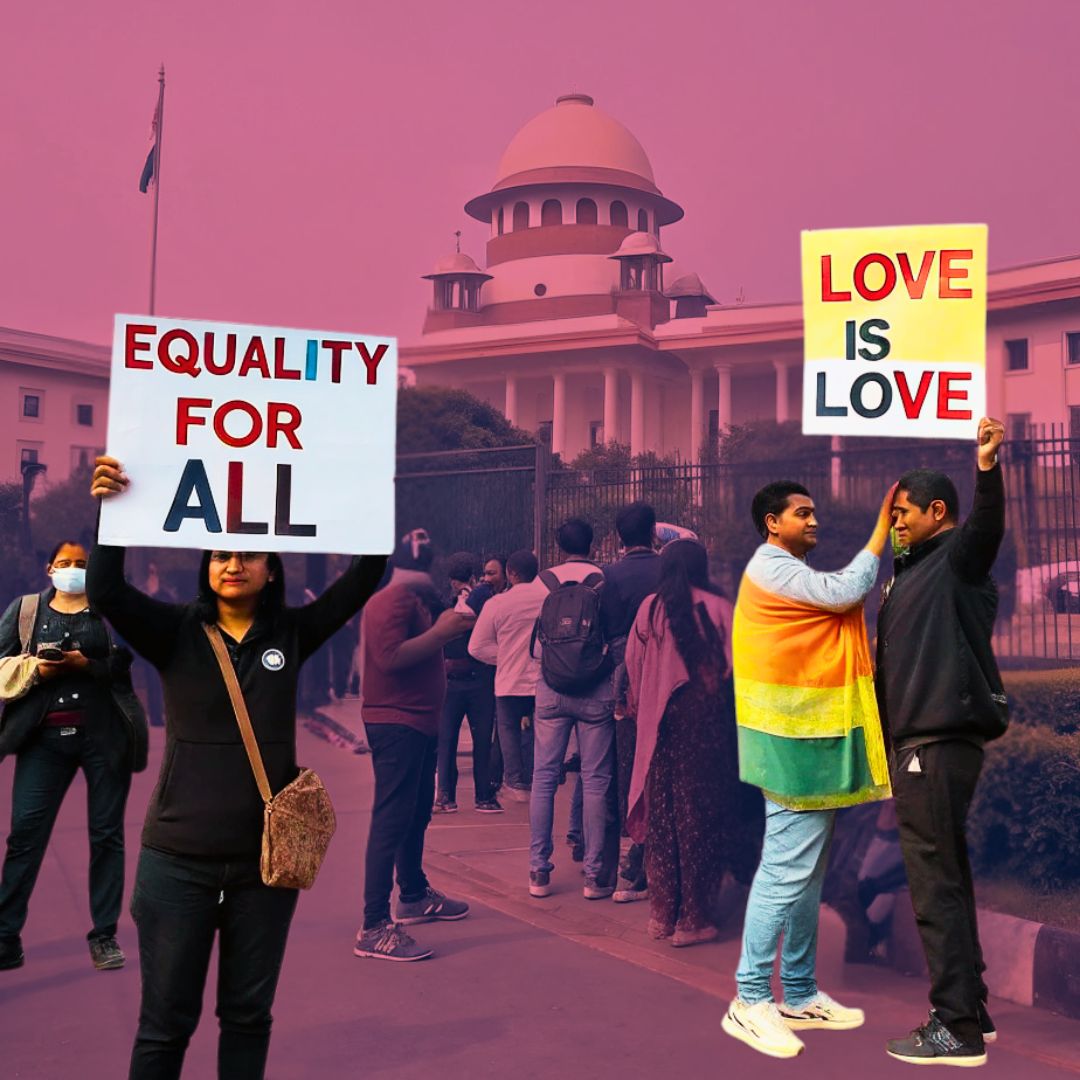The Supreme Court of India has once again rejected review petitions seeking legal recognition for same-sex marriages, maintaining its previous ruling from October 2023. A five-judge bench, led by Justice B R Gavai, unanimously concluded that there was no error in the earlier judgment, which denied marriage rights to same-sex couples.
This decision has been met with disappointment from LGBTQIA+ advocates who argue for marriage equality. The court reiterated that any changes to the legal status of same-sex marriage must come from legislative action rather than judicial intervention.
Supreme Court’s Firm Stance on Same-Sex Marriage
On January 9, 2025, the Supreme Court dismissed petitions that sought to review its October 2023 ruling against the legal recognition of same-sex marriages. The five-judge bench, which included Justices Surya Kant, B V Nagarathna, P S Narasimha, and Dipankar Datta, stated that the review petitions lacked sufficient merit and did not warrant an open-court hearing.
The bench emphasized that both previous judgments were consistent with the law and found no apparent errors in the majority opinion authored by Justice (retired) S Ravindra Bhat, which had previously ruled against extending marriage rights to same-sex couples. The court’s decision underscores its commitment to upholding existing laws while leaving the door open for future legislative changes.
Background on the Legal Battle
The Supreme Court’s October 2023 ruling was a significant setback for advocates of marriage equality, as it denied legal recognition to same-sex unions by a narrow 3-2 margin. Following this decision, the petitioners sought a review in hopes of overturning the ruling. However, the court’s latest decision reinforces its position that issues surrounding marriage equality are legislative matters, not judicial ones. Advocates for LGBTQIA+ rights expressed their disappointment, arguing that this ruling further marginalizes an already vulnerable community and restricts their fundamental rights.
The court’s earlier judgment had sparked widespread debate across India, with many citizens and activists calling for a re-evaluation of societal norms regarding marriage and family structures. In response to the ruling, several LGBTQIA+ advocacy groups organized protests and awareness campaigns to highlight the need for equal rights and protections under the law. They argue that denying marriage rights not only affects personal relationships but also has broader implications for inheritance rights, taxation benefits, and social acceptance.
The Logical Indian’s Perspective
The Supreme Court’s decision to reject the review petitions reaffirms its position on the legal recognition of same-sex marriages, underscoring its commitment to upholding existing laws. While some legal experts suggest that the judiciary often refrains from addressing social reforms, arguing that such matters are best handled by the legislature, the ruling has sparked debate regarding whether the issue of marriage equality should be pursued through legislative change.
Advocates for marriage equality argue that legal recognition is crucial for ensuring social and economic equality, including access to benefits like inheritance rights and taxation. They maintain that denying these rights can further marginalize an already vulnerable community. However, the Court’s decision also reflects the broader complexities of balancing legal interpretations with evolving societal values.
As this issue continues to unfold, the role of lawmakers in addressing marriage equality becomes increasingly important. Whether this topic will be revisited through legislative reforms remains uncertain, but the ongoing conversation highlights the evolving nature of both law and society.
What role should lawmakers play in advancing marriage equality, and how can society contribute to a more inclusive legal framework?













